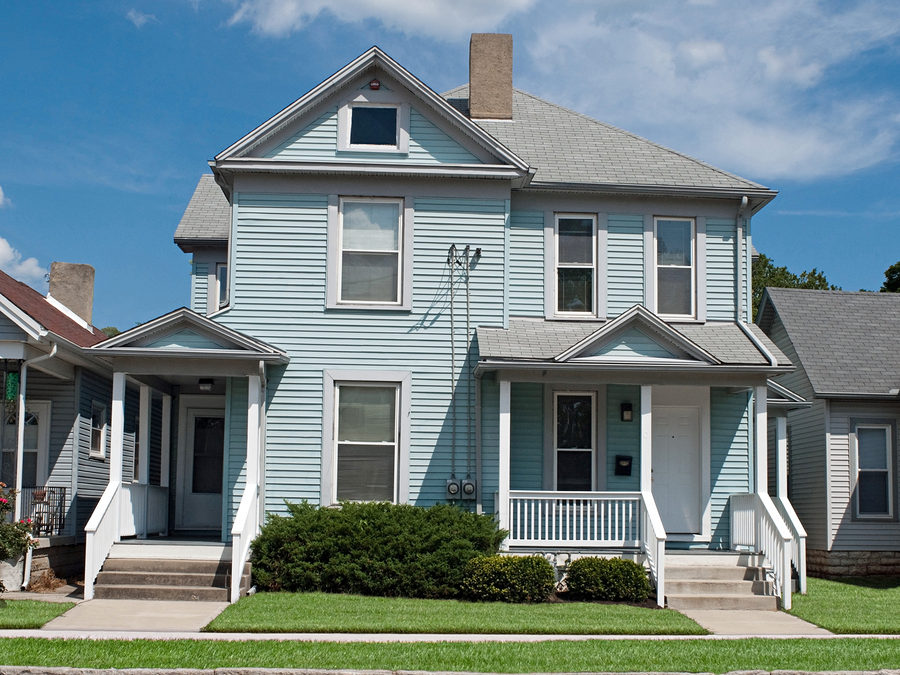If you ask any seasoned real estate investor what their most difficult deal was they will invariably say it was their first property. Not difficult because of the size of the property, getting funding or the players involved. It was hard because it was their first deal. That’s human nature. We are hard wired to avoid risk and the unknown.
What is house hacking?
“House hacking” is a trendy term for a small multi-unit investment property (2-4 units) where the investor actually lives in one of the building units. If you try this strategy, you must go in with your eyes open. You can lose money if you haven’t done your research.
Luckily, you’ve got us in your pocket! We’ve got the must-know list of questions for multi-unit house hacking. It includes all the questions you need to ask to shine a light on those scary unknowns. You knew it was going to be a good day, didn’t you?
Why is the owner selling?
The first, lynchpin question you need an answer for is: Why is the owner selling? Your first and second response will be something mumbled or vague. Keep asking. Why is the owner selling? Ask until you get an answer that sounds plausible. Then check the answer if you can.
Is the seller going through a divorce, a lawsuit or another legal disaster? Do they have trouble keeping decent tenants in the property? You never know what you might find. Knowing why the owner is selling will give you power as a buyer. Power is good.
Access your state court system and type in the seller’s name and the property address or legal description for the property. Do a little digging for property information with these screening resources.
Multi-unit house hacking requires answers to a spectrum of questions.
Start by gathering some basic property information
You’ll use the following information in deal negotiations.
- What is the age of the property? What building materials were used in its construction? As an investor it is your job to know every inch of the property that is on the selling block. You will be responsible for all of it.
- How many units are on the property? Go see them yourself.
- What is the square footage of each unit?
- Are all units legal and up to code or is the seller hedging?
- Are life safety systems such as exit signage, CO/smoke detectors and firewalls properly installed? What are state and local requirements for such systems?
- Has anything been remodeled? If so, when?
- Ask what, if any, capital improvements have been made over the past 5 years.
If no property improvements were made, then you know the seller has been putting a few things off. It is your responsibility to be certain the building is compliant with applicable building codes and approved for occupancy.
Who are the current residents?
This might be one of your most critical areas of research. After all, you’ll be living right next door to your residents.
- You must get a rent roll of the current tenants. Go as far back as you can. (Read: At least two years.)
- Find out how long the residents’ leases run, any concessions they received and how long they have been at the property.
- What is the average turnover time for a vacant unit?
- How long does the average tenant stay?
- Do residents generally get their security deposits back or do they leave in the middle of the night?
- What is the profile of the average resident? Do they meet your screening guidelines?
- Search for online reviews and discover what past and current residents think of the property.
What about the neighborhood?
Do your homework and you’ll have a more realistic understanding of the market and what the property is capable of producing. Start with these steps.
- Walk in a 10 block radius around the building. Do you see pawn shops and liquor stores or nail salons, coffee shops and restaurants? What does that tell you about the future of the area?
- Visit the property during the morning, afternoon and evening.
- What is the flow of foot and car traffic?
- What is the closest public transportation?
- Go to the police station and get a premise report on the property. Ask about the reputation of the area. How long do people stay in the neighborhood?
- Research what type of unit rents best for the neighborhood: one, two or three bedroom units? In other words, which unit type has the highest demand in this market?
- What are the rents in your area for one bedroom, two bedroom and three bedroom units?
- What are the current rental rates for the area?
- Ask around and find out what the neighbors think of their neighbors. People love to share their opinion.
Your homework will give you a more complete picture of the situation.
You can use all of your research to do your own multi-unit house hacking. When you know the neighborhood, the natural market resident and comparable buildings, you can estimate what you could ask for and get in rent. Based on the neighborhood and the rent roll you know how long your tenants will stay in your building.
What updates could you complete to command higher rents? What amenities or concessions motivates this market?
Reduce landlord risk
Exposure to risk is what keeps many people from investing in multi-unit properties. You eliminate risk with education, like anything else. It’s important to know what questions to ask to mitigate your risks.
For every vacant unit you should know what the related costs are for
- Tenant screening fees
- Legal fees
- Evictions and related court costs
- Lost rent
- Leasing fees
- Turnover expenses for cleaning, trash, repairs, and maintenance
To avoid a few of these costly issues make sure you have a proper tenant screening system in place. Running a potential tenant through a basic credit check will cost time and energy but avoid headaches down the road.
Look for tenants with stable employment and higher disposable income instead of taking the first person that applies. Yes, it is tempting. There are apps for landlords that can help you with landlord responsibilities.
What are typical unit turnover costs?
Everyone has heard stories about tenant damage. It doesn’t always happen, but security deposits do serve a purpose. Get ahead of the game. Know that when a tenant leaves you will incur turnover costs. Get acquainted with professionals in your area so you know what a reasonable price would be for making a unit ready for a new tenant.
Since each unit is different, but measured in square footage, break down the price to a square foot average and use it as a formula. With each vacancy you may be paying for:
- Carpet cleaning
- Carpet/floor replacement
- Interior painting
- Full unit cleaning
- Trash removal
- Pest treatment
Do a little digging on landlord costs
Your expenses will include the upkeep of common areas, and payment of taxes, insurance, debt service and possibly property management.
- How are waste water and sewer charges tallied and paid? Are they paid by the tenants or the property owner?
- Is the owner responsible for any tenant defaults on utilities?
- Who pays for utilities such as gas, water, and electric?
- How often is pest treatment required?
- Will taxes be reassessed?
- Will your property insurance cover replacement value or market value?
- Do you need liability coverage?
- Do you need a property manager? What are their fees?
Don’t skip property inspections
Another risk lies in large maintenance items. Ask to see the paperwork on each unit. Hire professionals to inspect all units before you start negotiating. If the units are damaged or in poor repair, then they will have to be renovated immediately. This is where doing your due diligence pays off and saves you sleepless nights of worry.
While considering the property give close inspection to the
- structural integrity of the building,
- roof,
- furnace,
- hot water heater,
- windows and
- HVAC system
Make sure everything is in good working order. If not, their replacement costs should be included in your negotiations.
Cash flow
Long-term, to manage your risk, you will need a monthly and annual cash flow budget. (You perked up at the word cash flow, didn’t you?) A portion of this cash flow needs to be saved for unexpected needs. It is a reserve fund for the property, not your lifestyle.
Let’s face it, things will go wrong. You don’t want to build a house of cards. Cash reserves are the only thing that will help you weather any unforeseen issue. You need to know how much the property is producing and how tight your expenses will be. Analyzing the numbers is vital.
Your team
Now you are armed with solid questions for any multi-unit house hacking. Use them! Don’t think that you have to become an expert in every area. That’s why you have a team, remember? You are the leader of your team and should be cognizant of the questions that need answers.
Multi-unit house hacking has a lot of dimensions to the process and you should be fully informed before any purchases are made. Spend time getting to know the process and you will be wiser in your next multi-unit house hacking deal.
Learn more:
5 Biggest (And Costly) Mistakes Real Estate Investors Make
5 Tips to Get You Started Investing in Multifamily Real Estate
9 Real Estate Investment Decisions That Will Help You Sleep At Night
***
Latest posts by Theresa Bradley-Banta (see all)
- Multifamily Common Areas Maintenance & Management Tips - March 31, 2020
- 8 Tenant Gift Ideas That Will Boost Your Bottom Line - November 11, 2019
- Need a Package Delivery System at Your Multifamily Rental Property? - October 28, 2019



